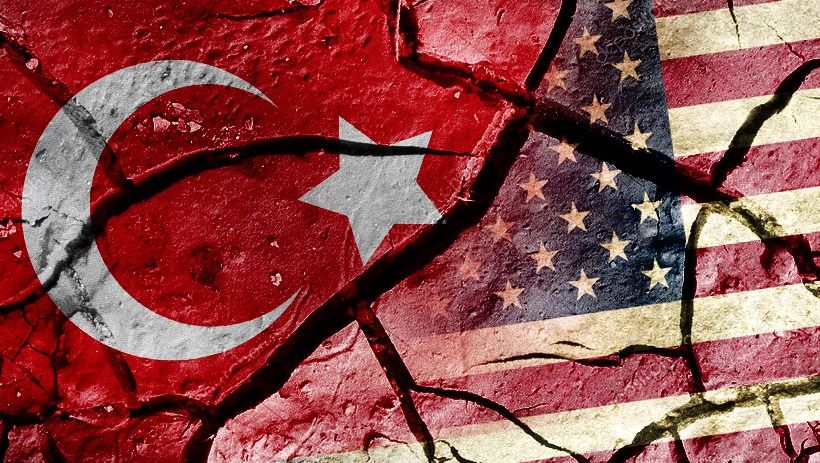On the 1st of August the U.S. government imposed sanctions on Turkish officials. The official representative of the White House Sarah Sanders announced that the sanctions were imposed against Justice Minister Abdulhamit Gul and Interior Minister Suleyman Soylu over the country’s imprisonment of Andrew Brunson. The United States has blamed both for being involved in Brunson’s arrest and detention. The Pastor was accused by the Turkish government of being connected with gulenist groups and is seen as a participant of the gulenist coup d’état in 2016.
The Turkish Foreign Ministry reacted fast: they announced their strong protest against the sanctions and promised to give a strong and immediate response.
“The aggressive attitude of the US, will not serve any purpose, but it will have an immediate and adequate response. We urge the US to abandon this erroneous decision,” the statement said.
The context
Erdogan’s political course changed after the gulenist coup d’état which took place in July of 2016. Erdogan started the total process of restructuring his policy towards the strengthening of the sovereignty of Turkey. In the last years, it had become obvious that the membership of Turkey in NATO weakens its international positions and independence. Turkey entered NATO in 1952. In that historical context this was a chance for Turkey to guard its sovereignty in front of the developing force of the soviet empire, which became powerful after World War II. After the collapse of the Soviet Union it turned out that Russia is no more the geopolitical opponent of Turkey and will not represent in the distant future a threat to the territorial integrity of Turkey. Ankara started its gradual transition to this new model of the defense of their sovereignty.
It was a long and protracted process and was happening during the invasion of America into Iraq and the donation to Kurds the ‘embryo’ of their state in the north to Iraq. That was a direct threat to the territorial integrity of Turkey. NATO, the structure, who guaranteed the sovereignty of Turkey during the soviet period, became the organization most threatening to Turkish independence. The geopolitical map has radically transformed. Erdogan made a number of serious strategic mistakes and realized that rapprochement with the West is leading the country into a ‘dead end’ and threatens territorial integrity, he began to pursue a more independent policy. The West responded with an attempted coup d’état.
Erdogan understood that the best possible way to ensure the territorial integrity and sovereignty of Turkey could be shift away from Western politics.
New geopolitical orientation of Turkey
The last political actions of Erdogan show his orientations toward the antiglobalist political structures: during the last summit of BRICS Recep Tayyip Erdogan called BRICS members to allow his country to join this organization. During the BRICS summit the Turkish president also held a meeting with Putin, where he noticed that the relations between Moscow and Ankara are experiencing an upsurge and that cooperation between the countries is developing fast in different spheres. After the summit. Erdogan had declared that US can lose Turkey as a partner.
Forecasts
There is a possibility that the Turkish authorities will close the Injirlik base for the US military, and in general they will reconsider their policy in the region.
In fact, direct sanctions against top Turkish officials are an unprecedented case within one alliance, because the US and Turkey formally remain in the same NATO bloc.
The possible scenario is that in the long term relations between Washington and Ankara will only worsen, and Turkey will be able to withdraw from NATO. In addition, Turkey has possible new allies: Russia, China, Iran.
The situation is aggravated by the internal tense atmosphere in Turkey (the economic crisis, the decline of the lira, the lack of jobs), so the break with the West can be painful. But such a line is inevitable if Ankara wants to break out of the vicious circle of dependance from US and conduct an independent sovereign policy.

















Leave a Reply